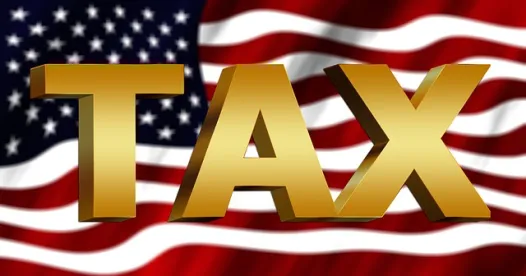Significant changes to the way entities taxed as partnerships are audited by the Internal Revenue Service, and to the way any resulting tax is collected, will become effective January 1, 2018. The new rules will affect most businesses operated as general partnerships, limited partnerships, limited liability partnerships and limited liability companies. Such entities will need to consider changes to partnership agreements, operating agreements, buy-sell agreements and other documents.
Currently, if the Internal Revenue Service wants to examine the tax return of such an entity, it audits the entity or in some cases the owners of the entity. If there are adjustments to the income reported or the deductions or credits claimed on the partnership return, those adjustments are allocated among the owners. If the adjustments, when combined with an owner's other tax attributes, result in additional tax, the owner is responsible for paying it.
The IRS will continue to audit the entity under the new rules. However, for returns for years after 2017 the IRS will for the first time be entitled to collect tax based on the audit adjustments directly from the entity. In other words, the partnership or limited liability company will be liable for the tax, as opposed to the owners.
Moreover, instead of tax calculations based on the tax attributes and tax rates of each owner, the tax from the entity will be calculated by applying a single tax rate to the audit adjustments. That rate will be the highest rate in effect for individuals or corporations, which is currently 39.6%.
The new law does, however, contemplate that the amount of the tax payable by the entity can be reduced. For example, the entity should be able to reduce the tax to the extent the audit adjustments are allocable to a tax exempt owner or to a "C corporation" owner or constitute allocations of capital gain or certain dividends to individuals. The tax due from the entity can also be reduced in certain cases if audit adjustments are taken into account on amended returns filed by owners, provided they pay any tax due on those returns.
The tax will be due from the entity after the audit is finalized. Over time ownership interests can change hands, ownership percentages can change, new owners can be added and existing owners can be redeemed. Therefore, the new system may mean that the effect of the audit will not be shared based on the relative ownership of the entity for the year being audited. Owners will likely find this inequitable. Fortunately, the new law permits certain elections that will have the effect of placing the burden of audit adjustments on the owners for the year being audited.
First, certain entities having, generally speaking, less than 100 owners may "opt out" of the new audit regime. The opt out is an annual election that needs to be made by the entity on a timely-filed partnership return. This election is only available to entities in which each owner is an individual, a C corporation, a foreign entity meeting certain requirements, an S corporation or an estate of a deceased owner. Thus, the opt out election is not available if any of the owners is a trust, another partnership or, in certain circumstances, a single-member LLC.
Second, even if an entity did not make the opt out election on the partnership tax return, it will be permitted to shift the responsibility for tax relating to the audit adjustments to the owners for the audit year if the entity makes an election to do so near the end of the audit process. This election has been called a "push out" election. If made, each owner's tax for the audited year and potentially other affected years will need to be redetermined, and each owner will then be responsible for paying the resulting increase in tax.
Under the new rules, a person authorized to act for the entity will need to be designated. This partnership representative will have the sole authority to act with respect to the audit, and the entity and all owners will be bound by the actions taken by the representative.
As suggested above, owners of interests in entities taxed as partnerships will likely find the potential calculation and collection of tax from the entity inequitable. As a result, owners will likely want to modify and draft partnership agreements, operating agreements and other contractual provisions to address the alternative treatments of audit results allowed to the IRS under the new rules.
For example, if the entity qualifies, many owners will want it to make an election to opt out of the new rules each year. If so, agreements should be amended to require that the election be included in tax returns.
Some might want to consider prohibiting issuance or transfers of ownership interests to trusts, partnerships or entities that would prevent the making of an opt out election. That may be impractical given estate and other planning goals, so owners should consider modifying agreements to require appropriate indemnifications for any tax the entity might become obligated to pay. Owners may also want to amend agreements to provide that, if the opt out election has not been made for the year under audit, the owners for that year will file returns and pay tax based on audit adjustments allocable to them.
Owners should also consider modifying agreements to address the selection of the partnership representative. The scope of the representative's authority, duties to keep owners informed regarding proceedings, and other matters, such as directions regarding the making of a "push out" election, should be considered.
Owners may also want to provide, in applicable agreements, how current and former owners will share in any tax that is paid by the entity. Such agreements should bind all owners of the entity for the year under audit.
Partnership agreements and operating agreements often require the making of distributions to owners sufficient to pay taxes on the entity's income. Such provisions will need to be reviewed for consistency with the new rules and the wishes of the owners.
The effect of the new rules must also be considered, and appropriate text included in documents, when interests in an entity that is taxed as a partnership are acquired, owners are redeemed, such entities merge or are dissolved, or other transactions involving the entity or its owners occur. Those acquiring ownership interests will want protection against the economic effect they might suffer if the entity must pay tax for periods prior to the time the interests were acquired.
The new rules apply to tax years beginning after December 31, 2017. Thus, changes to applicable agreements should be considered this year.




 />i
/>i

